Protein is an essential part of the daily diet. People get protein from different sources. Some for meat, chicken, eggs, and fish. Other from hemp, and plant-based options. However, athletes or those on the go often look to protein powders to supplement their diet.
Why Use A Protein Supplement?
In order to get the number of amino acids, you need to keep your body functioning properly. Proteins are essentially the building blocks of the body which help create organs, skin, hormones, enzymes, neurotransmitters, and the muscles that athletes crave. Not only that but these powerful amino acids can help to reduce inflammation and as the Mayo Clinic states, help with muscle recovery after a hard workout session. It also helps to boost antioxidants which, in turn, may improve endocrine health, heart health, and overall general well being.
Whey contains other nutrients too and essential amino acids, like the all-important branched-chain amino acids which health-conscious people are clamoring for. In fact, whey proteins have the highest content of BCAAs. The most effective BCAA is one called leucine. For muscle building, leucine is a must. A good whey protein, (such as the one you can find at SFH) has about 11% leucine content and 52% of overall essential amino acid content. Compare that to other animal proteins which only contain 7% leucine and 45% EAA’s and the choice is clear if you are looking to get that boost of building blocks.
Taking whey can be an easy way to include up to 50 extra grams of protein to your diet, according to Healthline, which is of keen interest to those who lift weights or exercise hard. Whey protein is also absorbed faster which is important for a number of reasons. It creates less of an insulin spike, as well as being thermogenic, so it burns more calories than carbs or sugar. Plus, it keeps you feeling fuller, longer. According to Healthline, protein’s ability to boost energy levels can aid people in eating 500 calories less than they normally would in a day. This is good news for those who are looking to keep their weight down.
Dealer’s Choice
Not all whey proteins are alike. It can be confusing choosing when you are eyeing many supplements at your local store. With lots of alternatives listing where their protein is derived from, how do you know what powder to go for? Here are some categories:
Hydrolyzed protein
- Hydrolyzed collagen is derived from beef proteins (usually cow hides), has low amounts of BCAAs. It is broken down so that it can quickly be absorbed, however, it isn’t necessarily the best source of protein as it lacks the properties that help to build muscle mass or aid in skin health.
Casein protein
- While whey is 20% derived from milk, casein is the remaining 80%. Casein digests slowly, which is why people often have some before they sleep. Often people make a shake with casein or have some milk so it can help repair their muscles overnight. While casein can provide muscle growth, it doesn’t work as fast as whey, which means it keeps you fuller longer, but may not be as effective. If you are looking to bulk up whey may be a better choice. If you want to stay satiated, then casein can help with that.
Whey Isolates
- Isolates are usually the choice of the lactose intolerant. While it is true that whey isolate contains more protein, approximately 90% protein to a concentrate’s 70-80%, the drawback of an isolate is that it goes through a denaturing process. What strips the powder of lactose also removes micronutrients and healthy fats.
Plant Protein
- For some who are on a specific diet, a plant-based based protein is the only viable option. However, this does affect their protein intake, since these powders have significantly less amount of BCAAs and EAAs. Overall, plant-based powders also have lower leucine content than their animal-based counterparts.
Often when extracting the protein in order to make the whey, a process using heat or acid is used, called denaturing. This method of pasteurizing and breaking down the protein can strip the supplement of enzymes that are helpful to the immune system. Non-denatured whey concentrates, such as those found in SFH protein, are made using a cold filtration process and freeze-drying method to pasteurize and remove bacteria, and they maintain their cellular structure, therefore are a good source of bioactive peptides, antioxidants, and other immune-boosting benefits.
Keep Them Separated
If you’re puzzled by certain ingredients in your powder, lecithin might be one of them. Lecithin is a natural emulsifier that is absorbed through our cell membranes and which is helpful to immune and cardiovascular health. Not only that, but it keeps whey powder from clumping in water, which is handy when you’re whipping up a protein shake. SFH uses sunflower derived lecithin because it is non-GMO as opposed to soy-based lecithin that is often used in other similar whey protein products. Soy lecithin, though sometimes claimed to lower cholesterol, has also been thought to contribute to artery and heart conditions, according to the New England Journal of Medicine.
Measure For Measure
The RDA, recommended dietary allowance or RDI, recommended dietary intake for protein according to Harvard Health is .8 grams of protein per kilogram of body weight. gets into our cell membranes and has healthy effects on our immune and cardiovascular systems. That’s the bare minimum to keep you functioning and your body’s system in tip top shape, not necessarily the optimal amount you should eat per day. The formula to determine how much you should be ingesting as a sedentary adult is multiply your weight by .36 and that is how many grams you can have in a daily menu. Ideally, non-active people would have about 50-100 grams of protein a day whereas athletes and muscle builders would double that.
Why Whey?
Consider the source. It is important to weigh the factors of what comes with your protein. When eating certain types of protein such as sausage or steak, you will be also eating something with a higher fat content as opposed to lean chicken or even better, a whey protein shake. In review, a protein supplement can be absorbed more quickly than protein you get from whole foods, and if it is from whey you are getting a lot of leucine, which kicks your muscle protein synthesis into high gear as well as balancing out energy levels, burning calories and has overall health benefits.
When you choose a protein supplement, be sure to avoid a proprietary blend which most likely will disguise a combination of inferior ingredients. SFH PURE Whey is sourced from grass-fed, free-range cows with no growth hormones. This means you are getting whey protein that is a natural source of amino acids needed by the body on a daily basis.


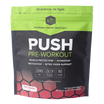
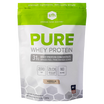
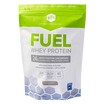
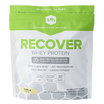
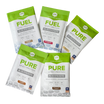
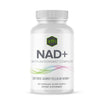
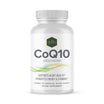
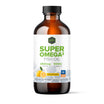
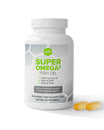
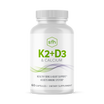
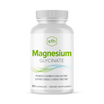
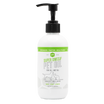
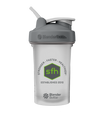

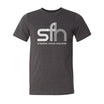




Leave a comment
This site is protected by hCaptcha and the hCaptcha Privacy Policy and Terms of Service apply.